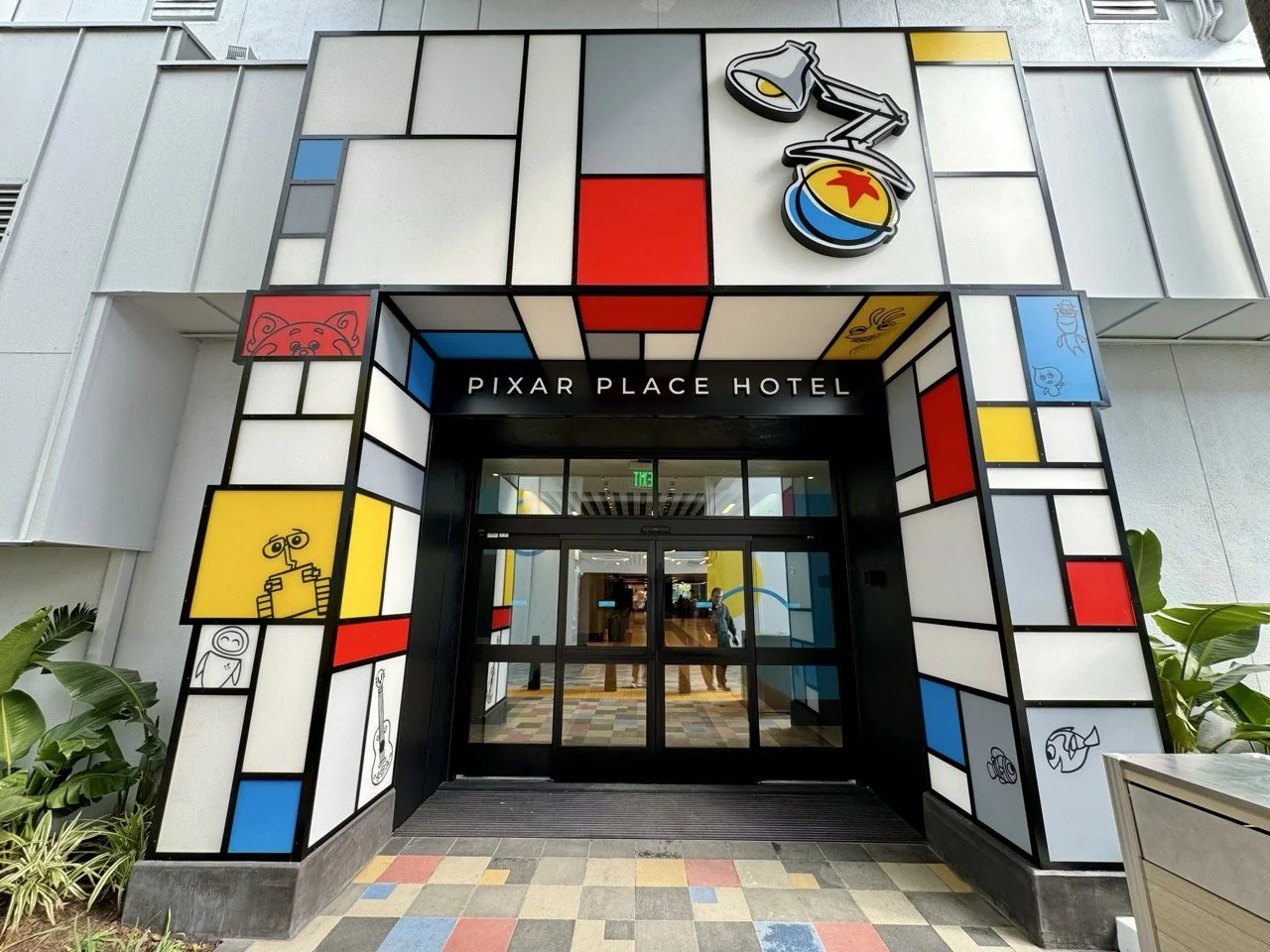Travel Agency Reviews: What to Look For When Choosing an Agency
Booking a vacation should feel exciting, not overwhelming. You've got a million tabs open on your browser, endless hotel options, conflicting flight times, and you're wondering if you're even getting a good deal. Sound familiar? This is exactly where the right travel agency can transform your entire planning experience from stressful to seamless!
But here's the thing—not all travel agencies are created equal. Some will treat you like just another booking number, while others will become your trusted travel partner for years to come. The difference between a mediocre trip and an unforgettable adventure often comes down to choosing the right agency. So how do you separate the exceptional from the average?
In this guide, we're breaking down everything you need to know about evaluating travel agencies. Whether you're planning a luxury honeymoon, a family Disney vacation, or a complex multi-destination adventure, these insights will help you find an agency that matches your travel style, respects your budget, and has your back when things don't go according to plan!
Looking for a great travel agent? Try any agent from MainStreet Travel! We’ve got amazing agents that go the extra mile! We’ve got 5-stars on Host Agency Reviews!
Why Reviews and Research Matter More Than Ever
Let's be real—anyone can slap together a website and call themselves a travel expert. But the travel industry has zero mandatory licensing requirements in most of the United States and Canada, which means you need to do your homework before handing over your hard-earned vacation money.
Think about it this way: you're essentially trusting someone with thousands of dollars and your precious vacation time. Would you hire a contractor without checking their reviews? Probably not. The same principle applies here. Travel agency reviews give you a window into what working with them actually looks like—not just what their marketing materials promise.
According to recent research, 72% of travelers read reviews before choosing a travel service, and for good reason. Reviews reveal patterns you won't find anywhere else: how agencies handle emergencies, whether they're responsive when problems arise, and if they deliver on their promises.
Professional Certifications and Credentials That Actually Matter
When you're evaluating a travel agency, credentials aren't just fancy letters after someone's name—they're proof of expertise and commitment to industry standards. Here are the certifications that should catch your attention:
American Society of Travel Advisors (ASTA)
ASTA membership is like the gold standard in the travel industry. With a code of ethics designed to keep the riff-raff out, ASTA-certified agents demonstrate professionalism and accountability. Bonus points if your advisor is VTA (Verified Travel Advisor) certified, which means they've passed ASTA's comprehensive program focusing on ethics, legal competency, and industry best practices.
The Travel Institute Certifications
The Certified Travel Associate (CTA) designation requires at least 12 months of industry experience and completion of core classes covering everything from office skills to specialized travel sales. The Certified Travel Counselor (CTC) takes it further, requiring five years of experience and focusing on management skills for building and growing travel businesses.
Cruise Lines International Association (CLIA)
If you're booking a cruise, look for CLIA certifications like Accredited Cruise Counselor (ACC), Master Cruise Counselor (MCC), or Elite Cruise Counselor (ECC). These designations show your agent has invested serious time in cruise-specific training and product knowledge.
International Air Transport Association (IATA)
IATA accreditation is demanding and renewed annually. Agencies with valid IATA numbers have passed rigorous standards and can be verified through IATA's database, giving you confidence in their legitimacy.
Pixar Place Hotel
Specialist vs. Generalist: Which Type of Agency Do You Need?
Here's where things get interesting. Should you work with a jack-of-all-trades or a specialist who knows your destination inside and out?
The Specialist Advantage
Travel agents who specialize in specific destinations or types of travel bring deep expertise that generalists simply can't match. Planning a safari in Tanzania? You want someone who's been there, knows the best lodges, understands seasonal wildlife patterns, and has relationships with local operators. Booking a Disney World vacation? An agent who specializes in theme parks will know which restaurants require reservations six months out and how to maximize your Lightning Lane selections.
Specialists command higher fees because their knowledge is worth it. They're not Googling information alongside you—they've lived it, experienced it, and can share insider tips you won't find in any guidebook.
When Generalists Make Sense
That said, generalists offer their own advantages, especially if your travel needs vary. Maybe this year it's a Caribbean cruise, next year it's a European river cruise, and the year after that it's a mountain retreat. A good generalist has broad connections and can handle diverse trip types without starting from scratch each time.
The key is matching the agency's expertise to your specific needs. Don't hire a cruise specialist to plan your backpacking trip through Southeast Asia, and don't expect a budget travel expert to navigate luxury villa rentals in Tuscany.
Red Flags That Should Send You Running
Your gut instinct exists for a reason. If something feels off about a travel agency, trust that feeling. Here are the warning signs that should have you looking elsewhere:
Payment Demands That Don't Add Up
Legitimate agencies accept credit cards, period. If an agent insists on cash, wire transfers, or gift cards, run the other direction. These payment methods are red flags because they're nearly impossible to trace or reverse if something goes wrong. Credit cards offer built-in consumer protection—use them.
Pressure Tactics and Fake Urgency
Scammers love creating artificial pressure. "Book now or lose this deal!" "Another client is interested in these same dates!" Real travel professionals give you time to make informed decisions. If an agent is pushing you to commit before you're comfortable, that's a massive red flag.
No Verifiable Contact Information
Can you find a physical address? A working phone number? An actual office? If the agency relies solely on email or social media contact, proceed with extreme caution. Check their website thoroughly—legitimate businesses provide multiple ways to reach them.
Missing or Negative BBB Ratings
The Better Business Bureau tracks complaints and assigns letter grades to businesses. Take ten minutes to look up your prospective agency. If they have unresolved complaints or a low rating, consider it a serious warning sign.
Vague Information About Trips
If an agency can't provide clear details about hotels, airlines, destinations, or what's included in packages, something's wrong. Professional agencies provide detailed itineraries with cost breakdowns and transparent cancellation policies.
Fees, Commissions, and Real Value
Let's talk about the elephant in the room—do travel agents cost more than booking yourself?
How Travel Agents Actually Get Paid
Most travel agents earn their income through commissions paid by hotels, cruise lines, tour operators, and other travel suppliers. Hotel commissions typically range from 5-10% (some agents secure 12% or higher), while other suppliers vary from 1-20% depending on the service.
Many agencies don't charge you a dime out of pocket because they're compensated through these supplier commissions. The price you pay is often identical to booking directly—but with a travel agent, you get expert guidance, time savings, and someone in your corner when problems arise.
Planning Fees: Worth It or Not?
Some agencies charge planning fees ranging from $50 to $500, especially for complex custom itineraries. While this might seem like an extra expense, consider what you're getting: hours of research, expert recommendations, insider access, and problem-solving support throughout your trip.
Think of it like hiring a financial advisor. Sure, you could research investments yourself, but a professional brings expertise that can save you money and headaches in the long run. The same applies to travel planning—the value often far exceeds the fee.
When Agencies Actually Save You Money
Travel agents frequently secure exclusive rates, upgrades, and amenities unavailable to the general public. They have relationships with suppliers that translate into real perks: complimentary breakfast, room upgrades, resort credits, spa discounts, and priority services.
Plus, consider the cost of mistakes. Booking the wrong hotel in a sketchy neighborhood? Scheduling flights with impossible connection times? Missing critical visa requirements? These errors can cost hundreds or thousands of dollars to fix—if they can be fixed at all.
Customer Service and Communication
You know what separates amazing travel agencies from forgettable ones? How they communicate, especially when things go sideways.
Response Time Expectations
In today's world, you shouldn't be waiting days for a simple email response. Industry professionals suggest same-day responses during business hours, with 24-48 hours being the absolute maximum for initial inquiries.
One Reddit user shared their frustration with an agent who took 40 hours to respond before they'd even booked anything. The consensus? Find someone else, because that lack of responsiveness will only get worse after you've paid. Your travel agent should be accessible, communicative, and proactive about updates.
24/7 Emergency Support
Flight canceled at midnight? Hotel overbooked when you arrive exhausted after a 12-hour journey? These scenarios happen, and you need to know your agency has your back around the clock.
The best agencies provide 24/7 emergency services with real human beings answering the phone—not just automated systems. Some contract with specialized after-hours support companies, while others maintain their own round-the-clock teams. Before booking, ask specifically about their emergency support and get the number you'll call if problems arise.
Personal Touch vs. Automated Systems
Technology is great, but nothing replaces human expertise when you're stranded in a foreign airport or dealing with a travel crisis. The best agencies blend efficient tech tools with genuine personal service. They remember your preferences, understand your travel style, and treat you like a person, not a transaction.
Online Reviews: Where to Look and What to Watch For
Not all review platforms are created equal. Here's where you should be looking and what actually matters:
Google Reviews Reign Supreme
Google Reviews show up prominently in search results and on Google Maps, making them highly visible and trusted by consumers. With 73% of all online reviews coming from Google users, these reviews carry serious weight. Plus, Google Reviews are harder to fake than some other platforms because they come from real Gmail accounts.
TripAdvisor for Travel-Specific Insights
While TripAdvisor primarily reviews hotels and tours, some travel agencies maintain profiles there. The platform's travel-focused audience means reviews often provide detailed insights about specific trip experiences.
Better Business Bureau for Accountability
The BBB assigns letter grades based on complaint records, response to complaints, licensing, and government actions. It's not just about having a profile—look at how the agency responds to negative feedback.
Host Agency Reviews for Trade Insights
If you're evaluating independent agents who work through host agencies, Host Agency Reviews provides peer feedback and ratings specifically for the travel industry. Their Luminary Awards recognize agencies with high engagement and responsiveness.
Reading Between the Lines
Pay attention to patterns across multiple reviews, not just isolated complaints. Every business occasionally disappoints someone, but consistent themes—good or bad—reveal the truth. Look for specific details in reviews rather than generic praise or complaints. And check review dates; recent feedback matters more than reviews from five years ago.
Finding Your Travel Agency Soulmate
Chemistry matters. You're going to share personal information, budget details, vacation dreams, and travel anxieties with this person. The relationship needs to click.
Interview Your Prospective Agent
Don't pick the first agency you find. Talk to at least two or three before deciding. Ask about their experience, destinations they specialize in, how they handle problems, and what makes them different from booking sites.
Have they actually traveled to the places they're recommending? Personal experience beats reading a brochure every single time. Ask about their favorite destinations and why—their passion (or lack thereof) will show through.
Questions to Ask Before Committing
Get specific about fees. Do they charge booking fees? What about change fees or cancellation fees? What exactly is included in their service? How do they communicate—email, text, phone calls? What happens if something goes wrong during your trip?
Ask for references from past clients, especially for trips similar to yours. Any hesitation to provide references is a red flag.
Trust Your Gut
Beyond credentials and reviews, pay attention to how the agent makes you feel. Do they listen to your needs or push their own agenda? Are they patient with questions or rushing you off the phone? Do they seem genuinely interested in creating your perfect trip or just making a sale?
If the vibe feels off—even if you can't pinpoint exactly why—keep looking. You deserve an agent who makes you feel heard, valued, and excited about your upcoming adventure.
Technology and Tools
Today's best travel agencies blend old-school expertise with cutting-edge technology to deliver seamless experiences.
Customer Relationship Management Systems
Professional agencies use CRM systems to track your preferences, past trips, special dates, dietary restrictions, and travel history. This means they remember that you prefer aisle seats, hate early morning flights, and celebrated your anniversary in Tuscany three years ago. That personalization creates better experiences and saves you from repeating yourself.
Real-Time Updates and Mobile Apps
The best agencies provide real-time flight alerts, itinerary changes, and support through mobile apps. You should be able to access your complete travel details, receive notifications about delays or gate changes, and contact your agent directly from your phone.
AI and Automation Done Right
Smart agencies use AI to build custom itineraries quickly and chatbots for instant answers to common questions—but they keep humans available for complex needs and emergencies. The technology should enhance service, not replace the personal touch that makes travel agencies valuable.
Industry Reputation and Longevity
How long has the agency been in business? While new agencies can be excellent, established companies bring track records you can verify.
Check Their Standing
Research how long they've operated, whether they've grown or contracted, and if there are any complaints about financial stability. The 2023 bankruptcy of Vantage Travel, which owed customers $108 million, illustrates why this matters. Ask if they carry errors and omissions insurance, which protects both you and them against professional liability.
Industry Memberships and Awards
Beyond individual certifications, look for agency memberships in ASTA, affiliations with major consortia like Virtuoso, or recognition through industry awards. These memberships often require meeting specific standards and provide additional consumer protections.
Travel Insurance and Protection
A quality travel agency will bring up travel insurance without you having to ask. Why? Because they genuinely care about protecting your investment.
Understanding What's Covered
Travel insurance typically costs 4-8% of your trip price and can cover cancellations, medical emergencies, lost baggage, and trip interruptions. But not all policies are created equal, and your agent should explain exactly what's included versus excluded.
Watch out for agencies that self-insure or offer trip protection without proper bonding—this was exactly what trapped Vantage Travel customers who thought they were protected.
Agency Protection Mechanisms
In the European Union, laws require travel sellers to protect consumer funds through third-party trust accounts or insolvency insurance. The U.S. lacks similar comprehensive protections, making it even more critical to verify your agency's financial safeguards.
Ask if client funds are held in trust accounts separate from operating accounts. Agencies that commingle client money with business expenses create risk for customers.
Niche Expertise: When Specialization Matters Most
Certain trips absolutely demand specialist knowledge. Don't compromise on expertise for these travel types:
Complex International Travel
Multi-country itineraries, remote destinations, visa requirements, and cultural considerations all benefit from specialist knowledge. An agent who regularly books trips to Africa knows which vaccines you need, which tour operators are reputable, and what time of year offers the best wildlife viewing.
Luxury and Bespoke Travel
Luxury travel isn't just about expensive hotels—it's about access, insider experiences, and white-glove service. Specialists in this space have relationships that unlock private tours, chef's table dinners, and upgrades you can't buy at any price.
Group Travel and Destination Events
Planning a family reunion, corporate retreat, or destination wedding? Group travel specialists understand contract negotiations, deposit schedules, rooming lists, and how to manage the logistics of moving 20+ people across the world.
Theme Parks and Family Travel
Disney, Universal, and other theme parks have become so complex that specialists genuinely earn their keep. They know which rides to hit first, how to avoid crowds, where to eat without reservations, and how to maximize your park time.
Making Your Final Decision
You've done your research, checked reviews, interviewed agents, and verified credentials. Now what?
Start Small If You're Nervous
If you've never used a travel agent before, consider starting with a smaller trip to test the relationship. Book a long weekend or simple vacation to see how they perform before committing to that dream two-week European adventure.
Get Everything in Writing
Professional agencies provide detailed written agreements covering services, fees, cancellation policies, and what happens if things go wrong. Review these documents carefully before signing anything.
Stay Involved in the Process
Even with an excellent agent, you shouldn't completely check out. Review itineraries, confirm details make sense, and speak up if something feels off. The best agent-client relationships are collaborative partnerships, not one-sided transactions.
Frequently Asked Questions
Do travel agents really save money, or are they just an added expense?
In most cases, travel agents don't cost you extra money because they're paid through supplier commissions rather than fees from you. Many agents access exclusive rates, upgrades, and amenities unavailable to the general public, often saving you money while adding value. Even when agents charge planning fees (typically $50-500), the expertise they bring frequently prevents costly mistakes and secures perks that justify the cost.
How do I know if a travel agency is legitimate and not a scam?
Verify the agency has proper credentials like ASTA membership, IATA accreditation, or CLIA certifications. Check for a verifiable physical address, working phone numbers, and real customer reviews on Google and the Better Business Bureau. Legitimate agencies accept credit cards—never pay with cash, wire transfers, or gift cards. If you can't find clear contact information or the agency pressures you to pay immediately, walk away.
What questions should I ask a travel agent before booking?
Ask about their experience with your specific destination, what fees they charge (booking, cancellation, changes), and how they handle emergencies during travel. Find out if they've personally visited the places they're recommending and request references from past clients. Clarify their communication style and response time expectations, and ask how they get paid (commission, fees, or both). Don't forget to discuss their cancellation policies and what happens if your plans change.
Should I use a specialist or a generalist travel agent?
Choose a specialist if you're booking a complex or niche trip—think safaris, luxury travel, cruise-heavy itineraries, or theme park vacations. Specialists bring deep destination knowledge, insider connections, and expertise that generalists can't match. However, generalists work well if your travel needs vary year to year or you want one agent who can handle different trip types. Match the agent's specialty to your specific travel needs for the best results.
What's a reasonable response time from a travel agent?
During business hours, expect same-day responses for emails, with 24-48 hours being the absolute maximum for initial inquiries. Text and phone messages should receive near-immediate replies unless the agent is in meetings or on vacation. If an agent takes days to respond before you've even booked, find someone else—responsiveness only gets worse after they have your money. For true emergencies during travel, your agency should provide 24/7 access to support.
Are online travel agencies better than traditional travel agents?
Online travel agencies (OTAs) like Expedia offer convenience, price comparison tools, and self-service booking, but they lack personalized service and robust customer support. Traditional agents provide expert advice, handle complex bookings, offer 24/7 emergency support, and secure exclusive perks—but may cost more upfront. The best choice depends on your trip complexity and what you value: if you're booking a simple hotel stay, OTAs work fine. For complex itineraries, specialty travel, or trips where you want human support, traditional agents deliver better value.
What certifications matter most for travel agents?
Look for ASTA (American Society of Travel Advisors) membership, which demonstrates adherence to ethical standards and industry best practices. The Travel Institute's CTA (Certified Travel Associate) or CTC (Certified Travel Counselor) designations show formal training and experience. For cruises, CLIA certifications (ACC, MCC, or ECC) indicate specialized cruise knowledge. IATA accreditation is valuable for agencies booking airline tickets and international travel.
Can travel agents help with last-minute travel or changes?
Yes, and this is often where they shine brightest. Quality travel agents have access to booking systems and supplier relationships that help them find last-minute flights, hotel rooms, and alternatives during disruptions. Their 24/7 emergency services can rebook canceled flights, find accommodation when hotels are overbooked, and solve problems that would take you hours to resolve on your own. This support alone often justifies any fees you might pay.
How do travel agents get paid if I don't pay them directly?
Travel agents typically earn commissions from hotels (5-12%), cruise lines (10-20%), tour operators, and other travel suppliers when they book on your behalf. These commissions are built into the supplier's pricing, so you pay the same amount whether booking through an agent or directly. Some agents also charge planning fees for complex custom itineraries or services beyond basic booking, typically ranging from $50-500 depending on trip complexity.
What should I do if my travel agent isn't responding or seems unreliable?
If an agent becomes unresponsive or unreliable before you've paid, simply find another agent—you owe them nothing. If you've already booked and paid, document all communication attempts and escalate to the agency's management or owner. For serious issues, file complaints with the Better Business Bureau and review sites. If money is involved and you suspect fraud, contact your credit card company immediately to dispute charges and file a report with the Federal Trade Commission.
Choosing the Right Partner for Your Journey
Finding the perfect travel agency isn't about picking the one with the fanciest website or the lowest prices. It's about discovering a partner who understands your travel style, respects your budget, and genuinely invests in creating experiences you'll treasure forever!
Start by getting clear on what you need. Are you planning a once-in-a-lifetime trip that demands specialist expertise? Or do you need a generalist who can handle your varying travel needs year after year? What's your communication style—do you prefer quick text updates or detailed phone calls? Are you willing to pay planning fees for complex itineraries, or do you want commission-only service?
Once you know what you're looking for, use the tools we've covered. Check credentials and certifications. Read reviews across multiple platforms. Verify legitimacy through the BBB and industry associations. Interview at least two or three agencies before deciding. Trust your gut when something feels off.
Remember, the cheapest option isn't always the best value, and the most expensive doesn't guarantee quality. The right travel agency saves you time, prevents costly mistakes, unlocks exclusive perks, and provides invaluable support when unexpected challenges arise. They transform trip planning from a stressful chore into an exciting preview of your upcoming adventure!
Your perfect travel partner is out there. Armed with the insights from this guide, you're now equipped to find them. Happy travels—and here's to stress-free vacation planning that starts and ends with confidence!















